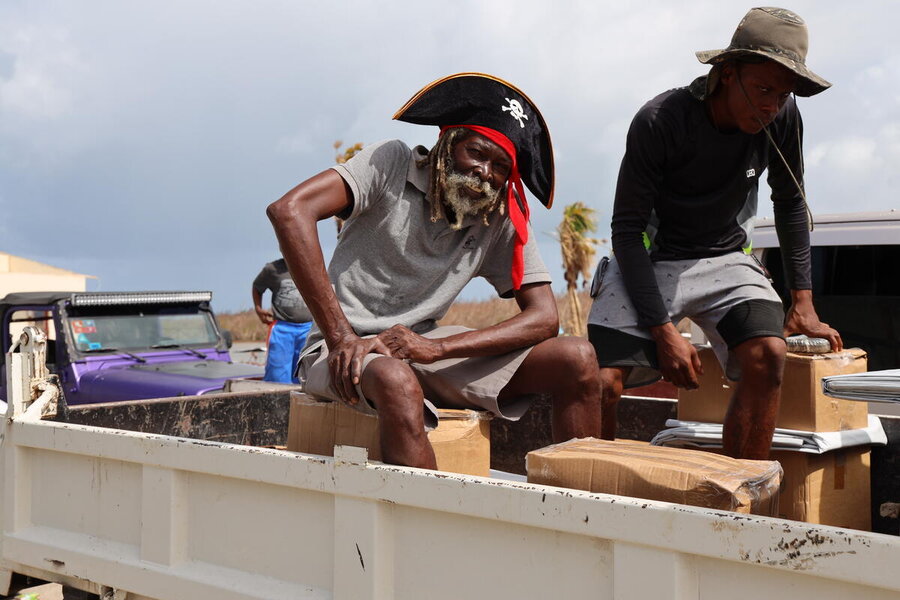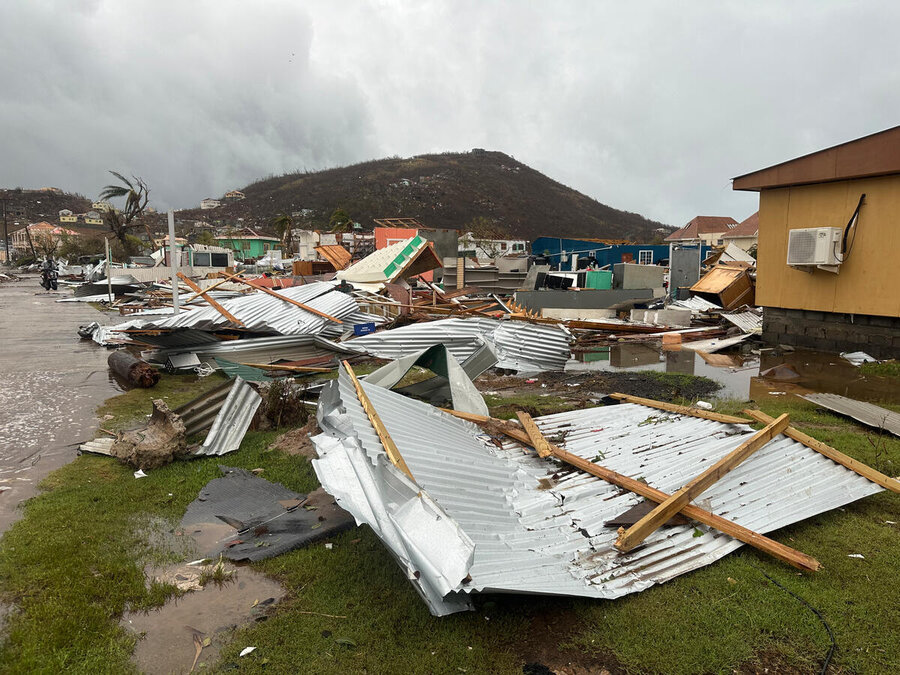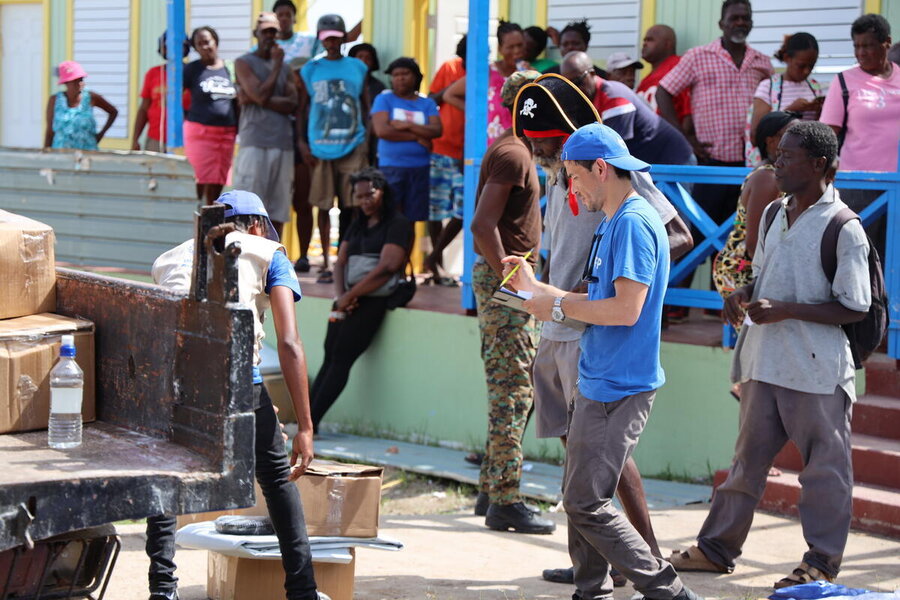The Backstory: The Caribbean’s Captain Harris - from Pirates’ icon to Beryl survivor

Sporting his iconic pirate hat, 58-year-old tour guide Coris Dember – better known as Captain Harris to his fans – has long been a colorful fixture among local residents and foreign visitors in tiny Union Island where he lives.
“I wanted to be a pirate so the guests could have a laugh,” says Dember of his boat tours around his native St Vincent and the Grenadines - themed after the swashbuckling Pirates of the Caribbean movie series filmed in the area. “I’ve always recognized myself as Captain Harris.”
Not so long ago, his sunny slice of paradise was a tangled mess of flattened houses, uprooted trees and downed power lines - the vestiges of Hurricane Beryl that barreled through parts the Caribbean and coastal United States in early July. The most powerful July hurricane on record, the storm demolished 90 percent of Union Island’s buildings.
“Everyone’s place was totally destroyed,” Dember says. “It’s amazing. I never expected something like that.”
Dember was among the first people to get World Food Programme (WFP) food kits, just weeks after the storm pummeled the region. Packed with tuna, peas beans, rice, oil and corned beef, the kits provided islanders with ten days’ worth of food - and helped them stay positive as they awaited additional help and began cleaning up the hurricane’s debris.

With Beryl’s crippling impact felt across the Caribbean, WFP has reached thousands of affected people with food and cash assistance. As part of a wider response by governments and humanitarian actors, we also provided power, logistics and connectivity support to storm-battered countries.
For many like Dember, it’s hard to forget the hurricane’s fury.
“I saw one of my brothers hanging onto a window,” Dember recalls of surviving Beryl’s 210 km/h winds that tore through the Grenadines. “The whole house’s contents started going up and whirling into space because of the winds. It was the first time I’d seen that in my life.”
When the winds lightened up, sheets of rain beat down. “Inside the house, it was like a blender full of dirt and grass,” Dember says. “Everything was totally destroyed.”
He managed to take his 84-year-old mother to shelter at an Anglican church rectory - one of the few buildings left standing. He is grateful his family is still alive.
Today, giant cranes dip down, clearing the island of storm debris. Most infrastructure is still partially damaged, but reconstruction is underway, and market and shop vendors are back in business. Dember and his family have also returned home, living under a sheet of blue tarpaulin that serves as a temporary roof.
There also remains massive work ahead to rebuild and repair, including the destroyed motors of Dember’s blue and white tour boat. The storm pummeled the region’s key fishing and tourism sectors that many residents depend on.
“I feel very shaken,” Dember says.

His supporters have rallied to his cause. “Stay strong,” one, called Tasha, posted on his Facebook page.
“He worked all his life to build a livelihood for himself and his family,” wrote another, Natasha, who has started a crowdfunding campaign to help him recover.
Dember is eager to get back to touring and resume his Captain Harris identity. “I’m looking forward to taking people around the Grenadines and show them our hospitality,” he says. “They’ll love to see I’m back on the top again.”
WFP has been supporting the broader hurricane response in Union Island and other Beryl-hit areas, which includes government-established community kitchens. We continue to work with local and national authorities to ensure assistance goes where it is most needed.
Our Beryl hurricane response in St. Vincent and the Grenadines was supported by Canada, the Central Emergency Response Fund (UN CERF), the Church of Jesus Christ of Latter-Day Saints, the European Union and the US Agency for International Development's Bureau for Humanitarian Assistance (BHA).
